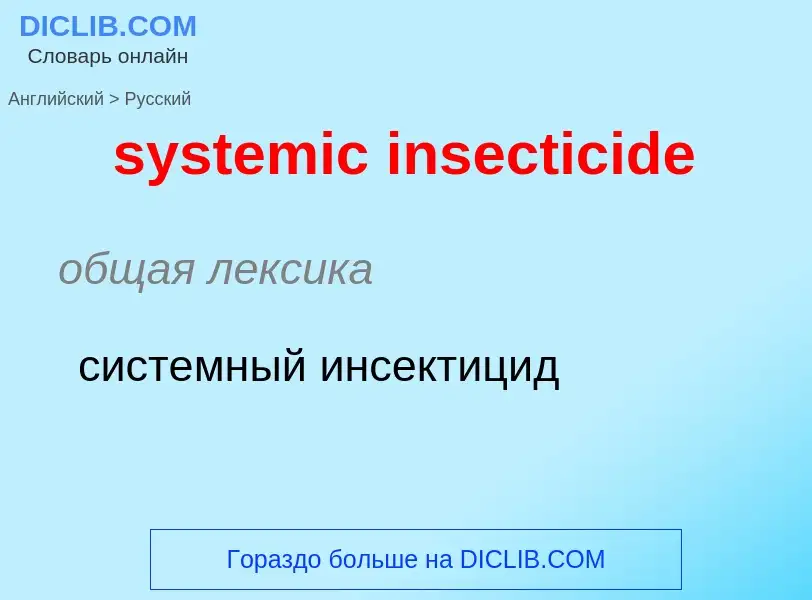Translation and analysis of words by ChatGPT artificial intelligence
On this page you can get a detailed analysis of a word or phrase, produced by the best artificial intelligence technology to date:
- how the word is used
- frequency of use
- it is used more often in oral or written speech
- word translation options
- usage examples (several phrases with translation)
- etymology
systemic insecticide - translation to russian
общая лексика
системный инсектицид
[in'sektisaid]
общая лексика
инсектицид
инсектисид
ядохимикат
Смотрите также
существительное
общая лексика
средство от насекомых, инсектицид
специальный термин
инсектицид
средство для истребления насекомых
редкое выражение
уничтожение насекомых
Definition
Wikipedia

Insecticides are substances used to kill insects. They include ovicides and larvicides used against insect eggs and larvae, respectively. Insecticides are used in agriculture, medicine, industry and by consumers. Insecticides are claimed to be a major factor behind the increase in the 20th-century's agricultural productivity. Nearly all insecticides have the potential to significantly alter ecosystems; many are toxic to humans and/or animals; some become concentrated as they spread along the food chain.
Insecticides can be classified into two major groups: systemic insecticides, which have residual or long term activity; and contact insecticides, which have no residual activity.
The mode of action describes how the pesticide kills or inactivates a pest. It provides another way of classifying insecticides. Mode of action can be important in understanding whether an insecticide will be toxic to unrelated species, such as fish, birds and mammals.
Insecticides may be repellent or non-repellent. Social insects such as ants cannot detect non-repellents and readily crawl through them. As they return to the nest they take insecticide with them and transfer it to their nestmates. Over time, this eliminates all of the ants including the queen. This is slower than some other methods, but usually completely eradicates the ant colony.
Insecticides are distinct from non-insecticidal repellents, which repel but do not kill.


![Farmer spraying an insecticide on a cashewnut tree in [[Tanzania]] Farmer spraying an insecticide on a cashewnut tree in [[Tanzania]]](https://commons.wikimedia.org/wiki/Special:FilePath/Kente l.jpg?width=200)

